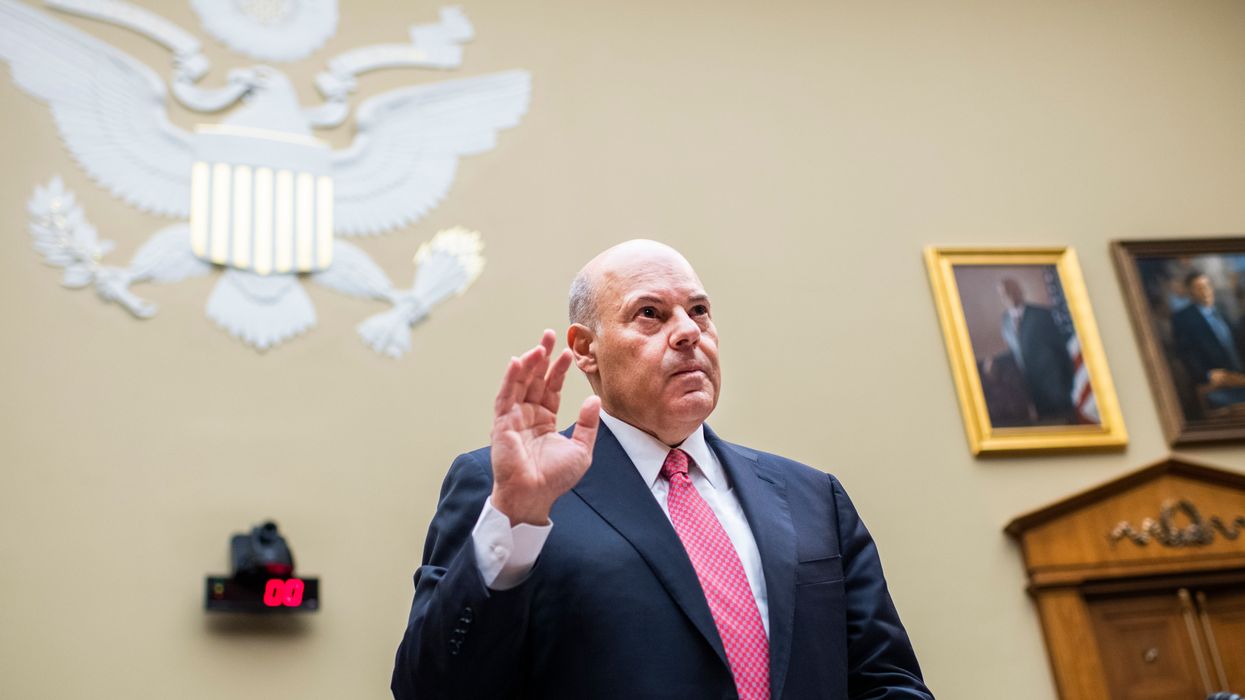When I was a teenager enduring Kansas City's summers, a highlight of the day was when Bill, our friendly mailman, arrived at the house. The attraction was not so much the few envelopes he might deliver — but rather the opportunity to chat with him for a few minutes over a glass of ice water.
I learned how he and his wife had adopted several children from different ethnic backgrounds, providing them a home and lots of love. He learned how my baseball team was doing. Then he would be off to finish his rounds — the sort of dedicated public servant, with the high ethical standards, we have come to associate with the Postal Service.
For me, those days of blistering heat would soon be filled with minimum wage jobs to earn spending money for high school and college. I saw Bill only occasionally, although 20 years later we did catch up one day when he dropped by my office on Capitol Hill.
My experience is not unique. Millions have had similar relationships with their mail carriers. That would account for why the USPS has the highest favorability rating of all government institutions: 91 percent (and the same share among Democrats and Republicans alike) according to the Pew Research Center.
Today postal workers like Bill are having their load significantly increased. The mail carrier's legendary creed — "Neither snow nor rain nor heat nor gloom of night stays these couriers from the swift completion of their appointed rounds" — is now more difficult to fulfill.
This year's hotly contested presidential election is being conducted during a pandemic sure to result in an unprecedented number of votes cast through the mail. But that's not all. The post office and its employees are under attack by President Trump and his newly handpicked postmaster general, Louis DeJoy.
This duo, with an enabling assist from the USPS Board of Governors, is setting the Postal Service up to fail for political reasons. Trump alleges, without proof, that voting by mail is so flawed that it will steal the election from him.
For his part, soon after arriving DeJoy made major changes in postal delivery capability that call into question whether millions of ballots will be returned in time to be counted. He reportedly has removed 671 high-speed machines capable of sorting over 21 million pieces of mail an hour, canceled employee overtime and removed hundreds of local mailboxes. His changes have resulted in slowing down the mail.
The actions by DeJoy and Trump seem to be designed to create so much confusion that voters will lose confidence in the eventual outcome of the election, or simply not vote.
With overwhelming approval from the public to be reckoned with, the USPS board would be wise to unwind these misguided efforts — rather than rely on a recent series of four firm but temporary federal court orders in response to lawsuits from almost half the states.
DeJoy's days as postmaster general should be numbered. He has recently become embroiled in defending himself in light of evidence he pressured his company's North Carolina employees to make political contributions to Republican candidates and then reimbursed the workers. If true, it would be a criminal violation of federal and state campaign finance laws. He may have also committed perjury by lying about it under oath to Congress.
Then there's Kentuckian Robert Duncan, who is chairman of the USPS Board of Governors and also reportedly a director of Senate Majority Leader Mitch McConnell's so-called super PAC — a clear conflict of interest.
Secretary Michael Elston is the board member responsible for carrying out compliance with all statutory requirements and also the Postal Service's chief compliance officer, making him responsible for his colleagues' following the USPS code of ethics.
"All employees are required to place loyalty to the Constitution, the laws and ethical principles above private gain," it says. "To ensure that every citizen can have complete confidence in the integrity" or the government, it goes on, "each postal employee must respect and adhere to the principles of ethical conduct."
What's been happening at the Postal Service reflects nothing less than an attempt to undermine our Constitution and the free and fair elections it envisions. Therefore, Elston should immediately open investigations of DeJoy and Duncan for possibly violating Postal Service conduct and ethics breeches. During such an inquiry, the two should be barred from casting any votes on the Board of Governors.
The USPS says its governors are "comparable to the board of directors of a publicly held corporation." For 18 years now, boards of such businesses have been governed by a law setting standards of corporate governance. The USPS, by embracing that statute, has assumed accountability not to shareholders but to its principal stakeholders — the American people.
The postal board, therefore, has a fiduciary duty to the public and must govern with loyalty to the mission of the USPS. Its loyalty is not to the president and certainly not to its own financial or political self-interest.
Board members must follow the USPS codes of conduct and ethical behavior prescriptions — and, most importantly, be loyal to the Constitution they swore to uphold. Doing all that means immediately reversing the harmful decisions DeJoy has implemented, restoring the equipment necessary to handle the onslaught of mailed ballots and paying those who will have to work overtime on election mail.
Having accomplished this, they will have done their part in assuring Americans will have a free and fair election, the basis of our constitutional democracy.



















Trump & Hegseth gave Mark Kelly a huge 2028 gift